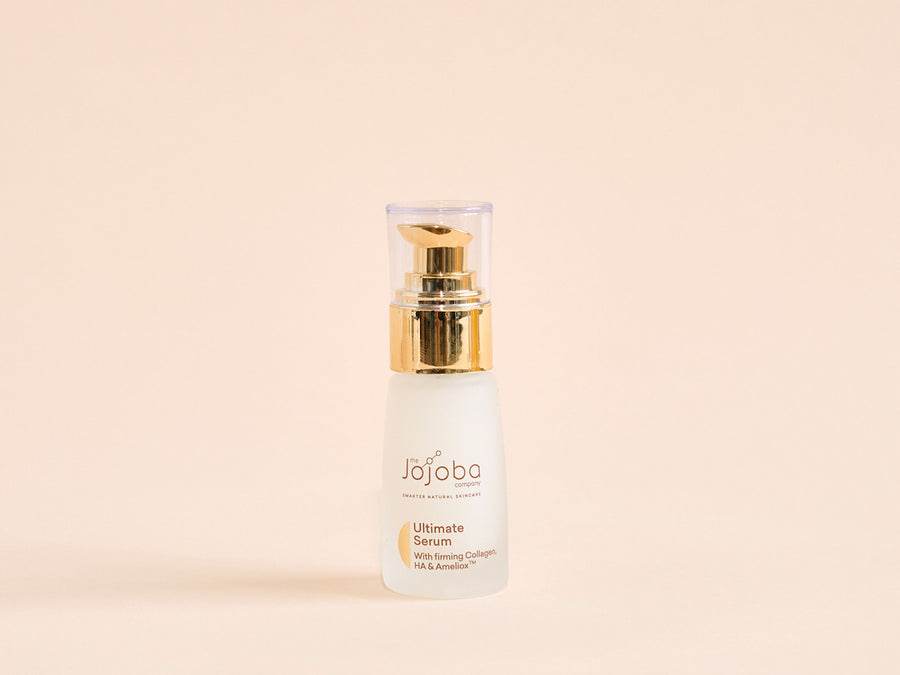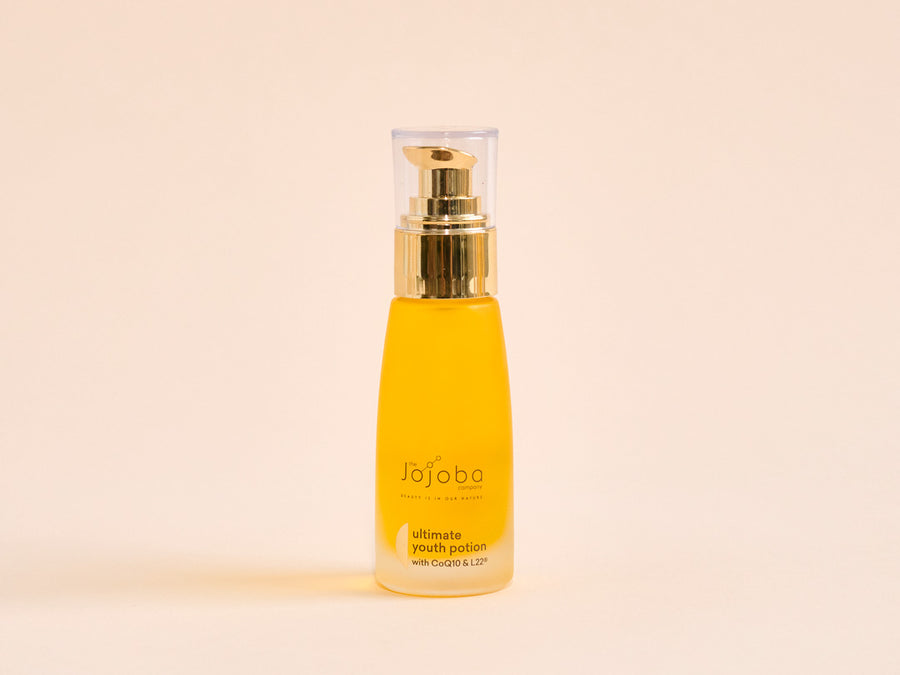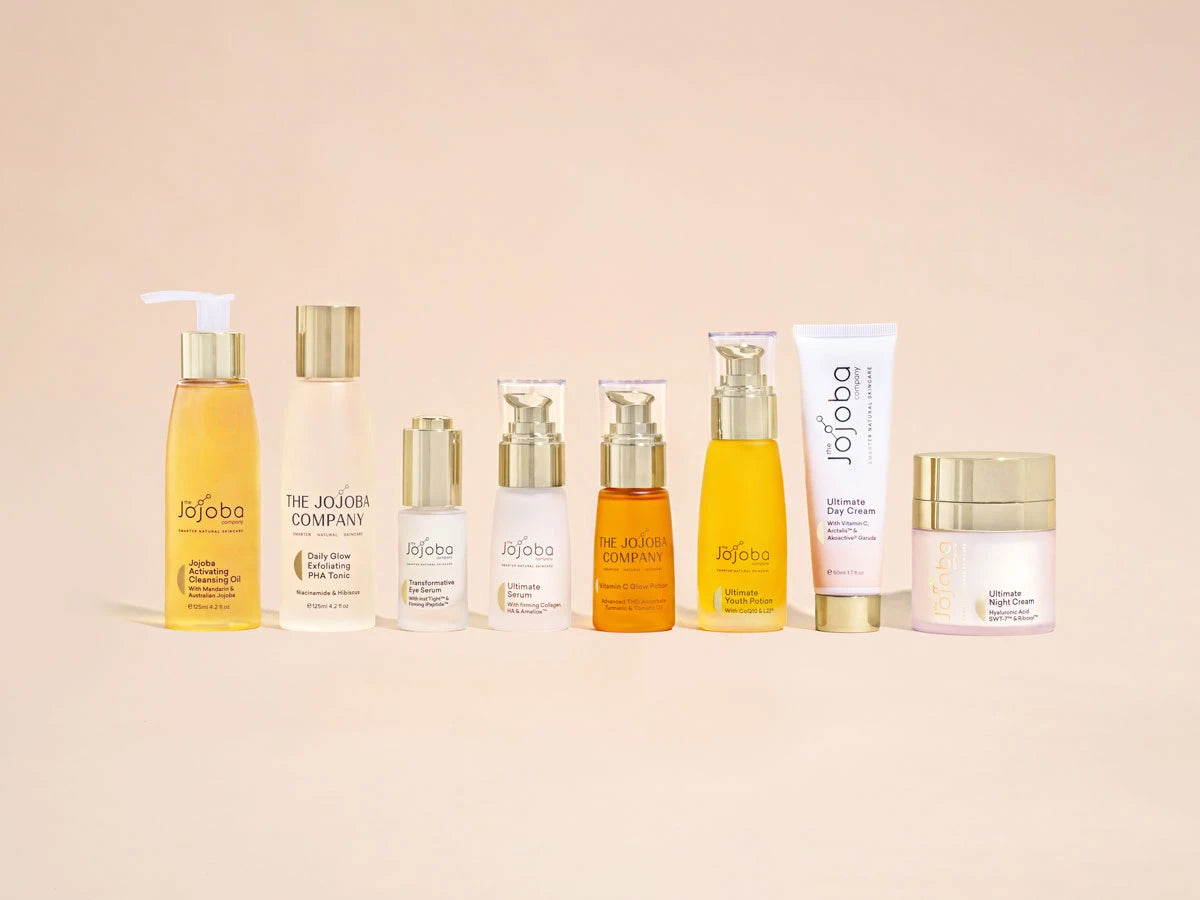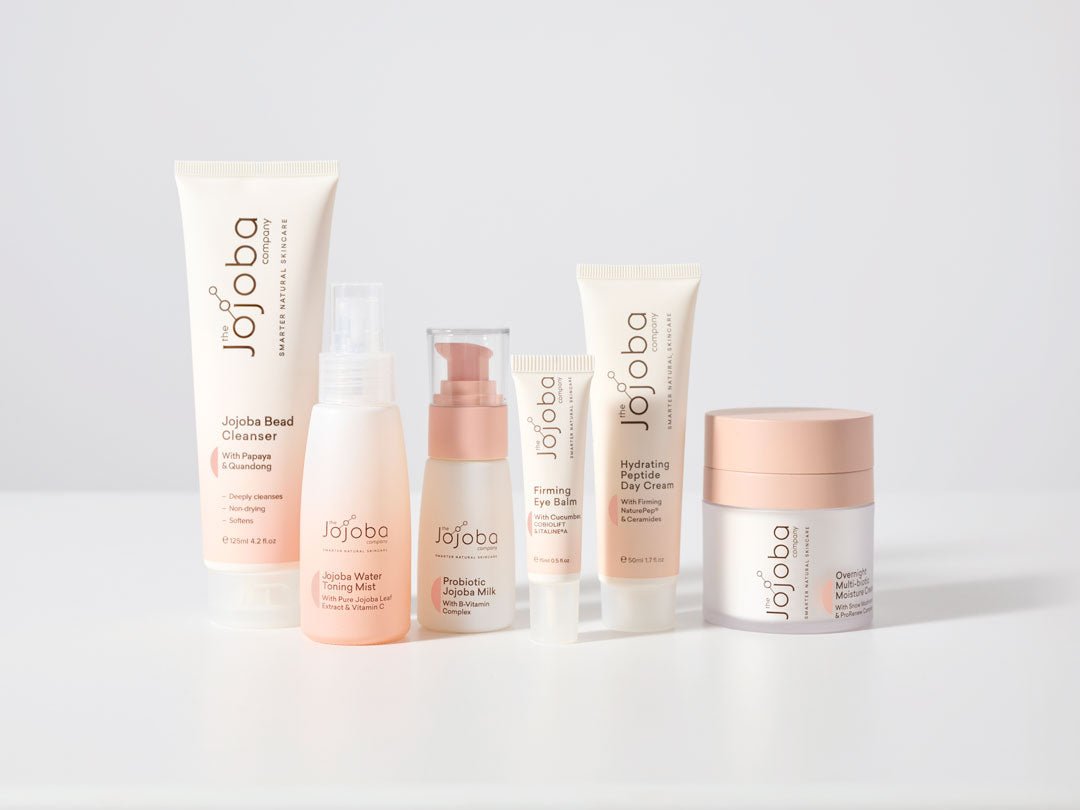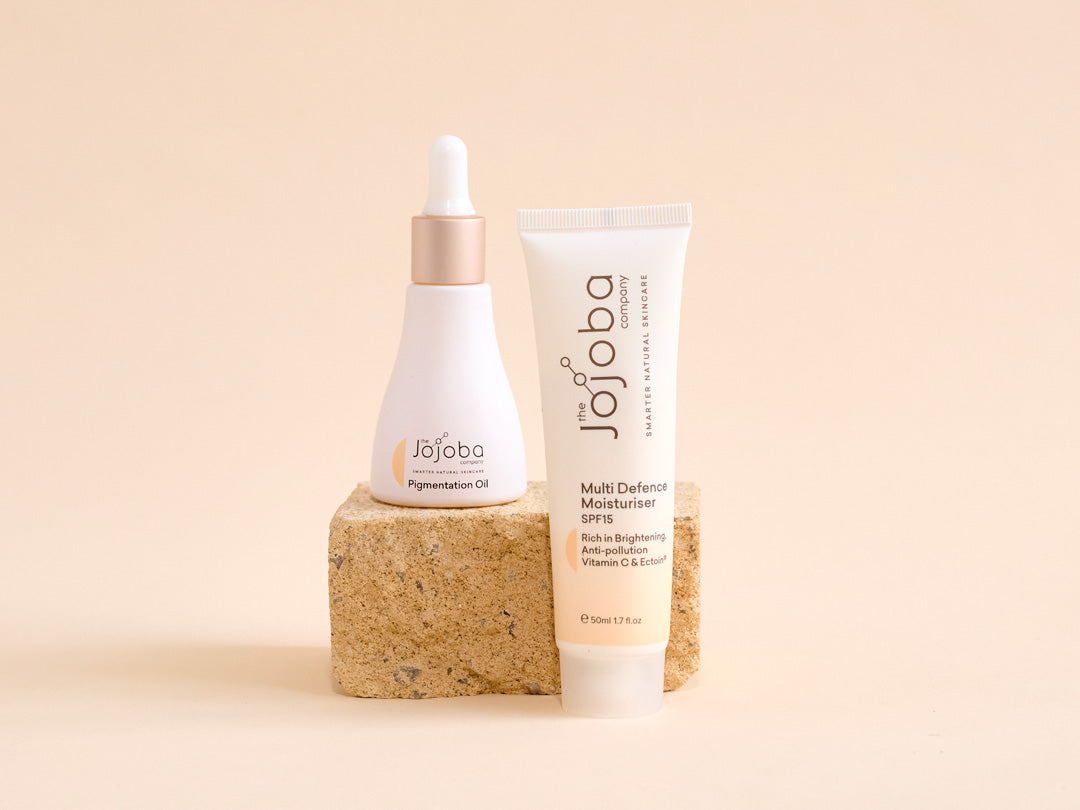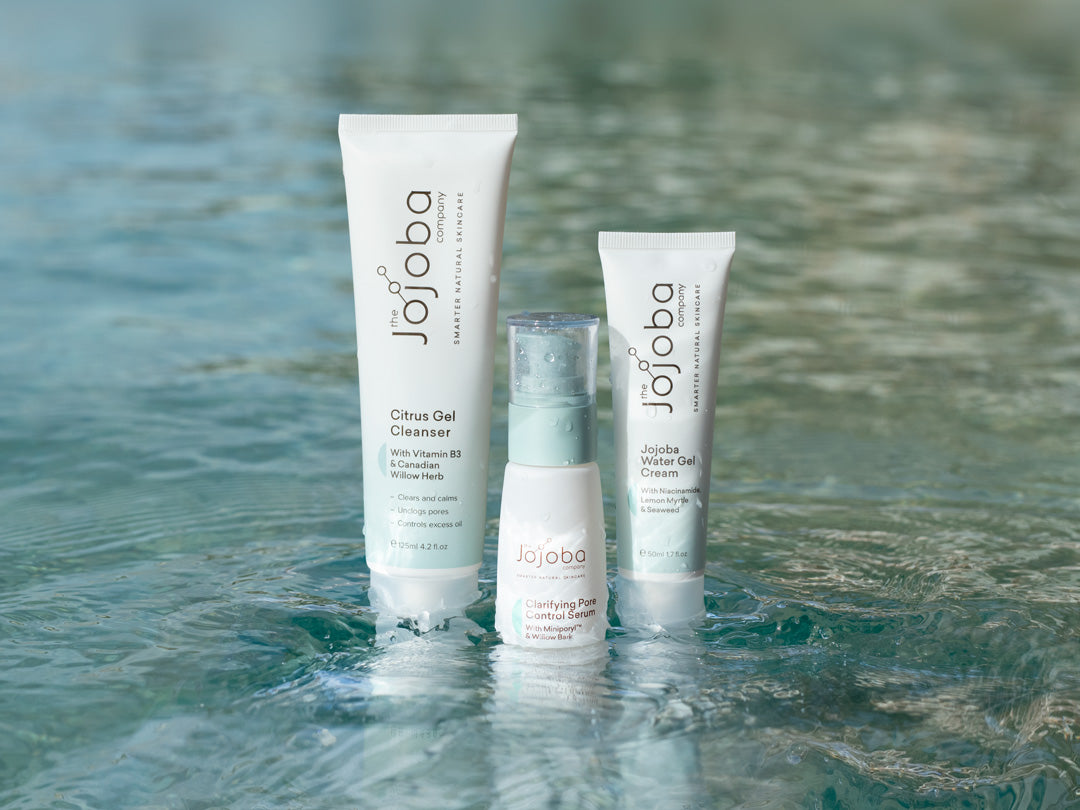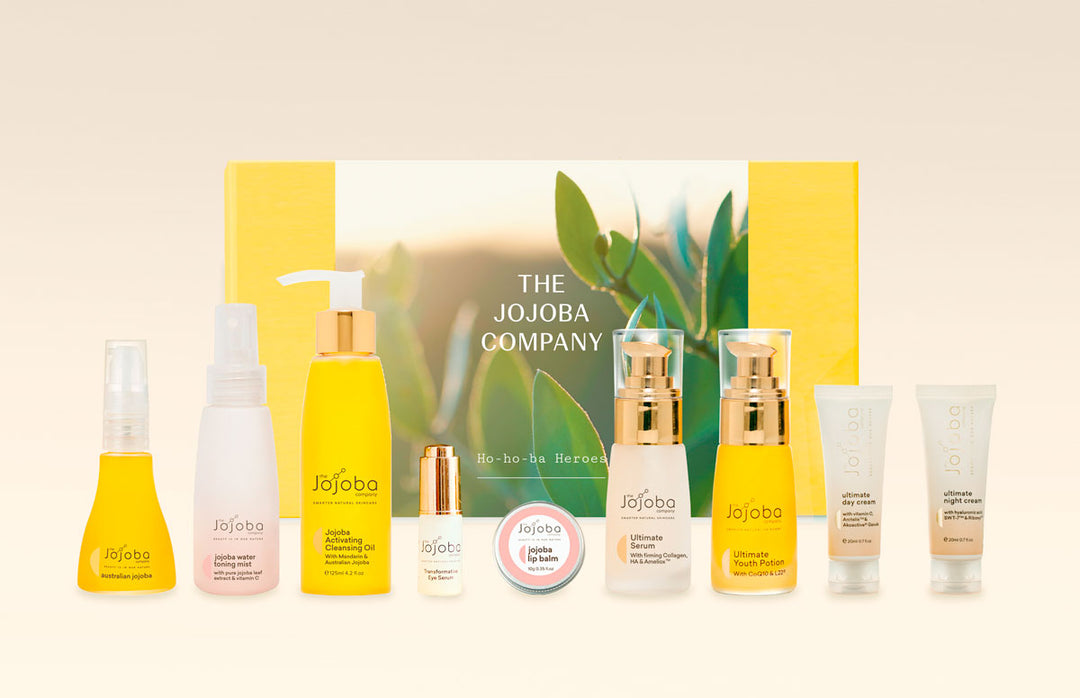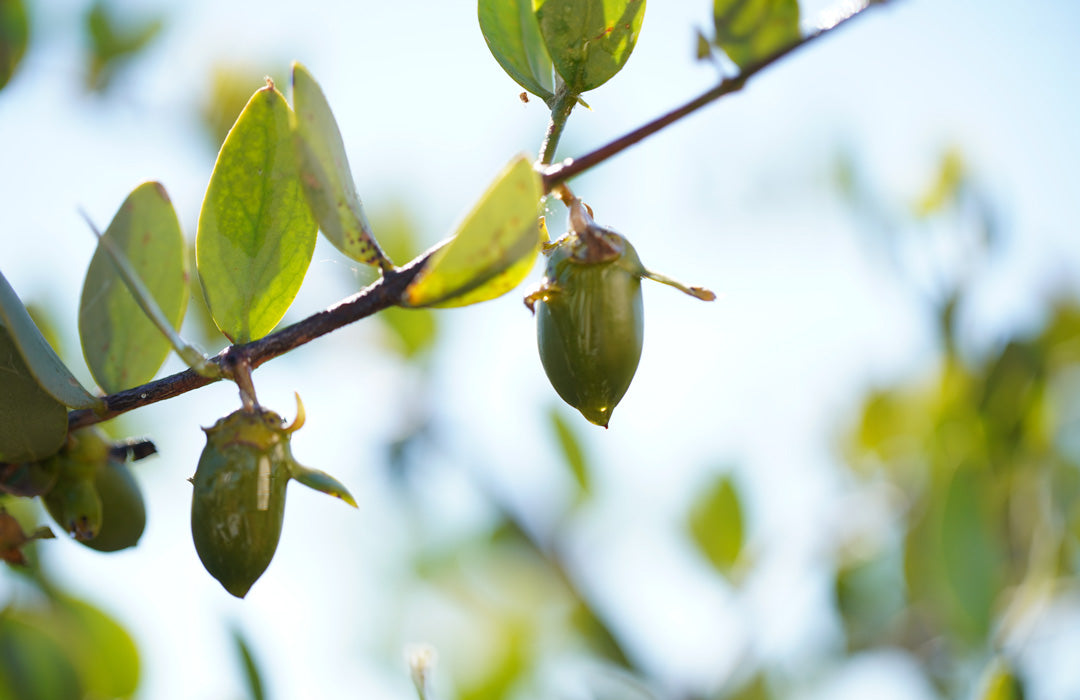What Is the Shelf Life of Jojoba?
Jojoba is a liquid wax. It has an extensive shelf life remarkable stability as it is designed by nature to smother, protect and preserve proteins in the beans against oxidation. That’s why nature built such powerful antioxidant properties into jojoba.
Plant oils readily oxidise or go rancid but jojoba is not oil. Its molecules have a structure that resists rancidity. Also, when we add plant oils to jojoba it protects the oils against oxidation.
The remarkable qualities of 100% natural Australian jojoba are at the foundation of The Jojoba Company's entire skin care range.
Jojoba FAQ
Is jojoba oil a good carrier oil?
Jojoba oil is one of the best carrier oils for mixing essential oils into your massage or skincare regime. Although jojoba oil is technically a wax and not an oil, it closely mimics the skin’s natural oil or sebum making it extra absorbent, non-comedogenic (doesn't clog pores) and a good choice for all skin types, especially those with oily or acne-prone skin.
How to tell if jojoba oil is expired
One of the easiest ways to tell if your jojoba oil has expired is to smell it. Expired jojoba oil will give off an unpleasant smell. Fresh, unprocessed jojoba oil hardly has any smell, just a faint earthy or nutty scent. Another way to tell if your oil has expired is to note its appearance. Fresh jojoba oil will have a light golden hue. Any changes to the colour may mean it has expired. Normally, jojoba oil will stay fresh for as long as 2 years before it expires. Exposure to heat, light and air may shorten its lifespan.
How to best store jojoba oil?
The best way to store jojoba oil is to keep it in an airtight jar or container away from direct sunlight or heat. Pop it in a dry area such as in your medicine cabinet or cupboard. The ideal storage temperature for jojoba oil should not exceed 50F /10 °C. Proper storage will ensure that your jojoba oil keeps without going rancid for a very long time.
